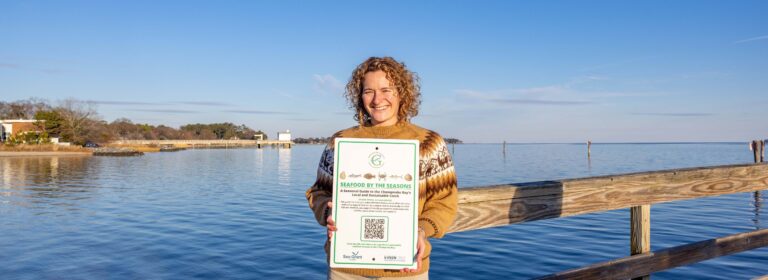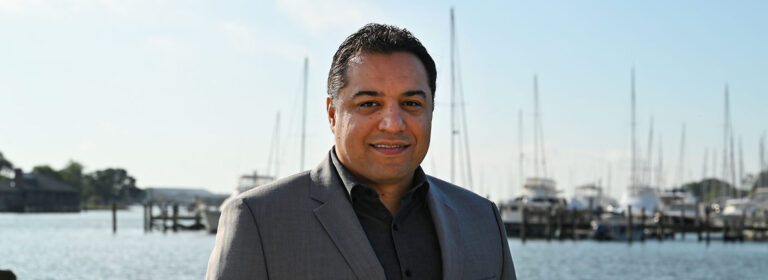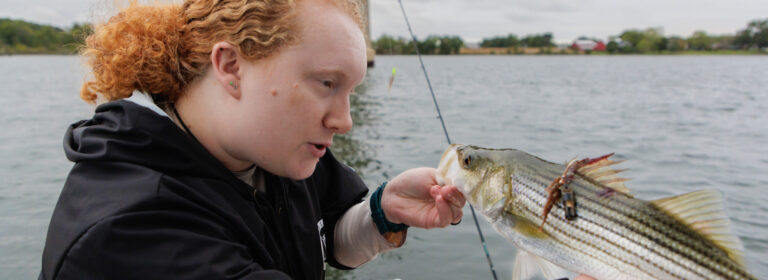Virginia Sea Grant, Virginia Institute of Marine Science, and University of Virginia receive half million-dollar National Science Foundation Award
Virginia Sea Grant (VASG), the Virginia Institute of Marine Science (VIMS), and the University of Virginia (UVA) are pleased to announce the receipt of a National Science Foundation award for $498,490.00, to design and test team science training that would build teamwork capacity among coastal ocean and estuarine STEM graduate students.
Team science is considered collaborative scientific research conducted by more than one discipline, in an interdependent manner. Its goal is to reach a deeper level of knowledge integration, since cross-disciplinary approaches are needed more than ever to address today’s complex, coupled socio-ecological challenges.
VASG Director and lead Principle Investigator (PI) for the project Dr. Troy Hartley says, “Solving today’s grand ecological and societal challenges in coastal and marine environments demands team science that produces innovative, integrated breakthroughs, and solutions that transcend individual disciplines. VASG sits at the nexus of these disciplines, and span sectors and functions in research, education, extension, and communication. As such we are perfectly positioned to help our university partners, Virginia and the nation overcome the challenges to team science by offering professional development programming for Virginia’s graduate students.”
Co-PI, VIMS associate dean of academic studies, and VASG Research and Education Advisory Committee member Linda Schaffner says, “Our goal is to give a new generation of scientists and policy-makers the knowledge and critical skills they need to work together effectively to find solutions to complex coastal issues that are important to the citizens of Virginia and the nation.”
Karen McGlathery, UVA’s Associate Vice President for Research and director of the Environmental Resilience Institute, and the other Virginia co-PI on the NSF award, adds “This award gives our institutions an unprecedented opportunity to partner and bring together multi-disciplinary faculty teams to train students using innovative workshops focused on community-based coastal resilience issues.”
Stephen Fiore, professor of cognitive science at the University of Central Florida, and Deborah DiazGranados, assistant professor in Virginia Commonwealth University’s School of Medicine, are key members of the leadership team, evaluating the collaborative problem solving training and teamwork effectiveness. Their contributions ensure continued improvement in the training and long-lasting impacts among the institutions involved. Fiore, a co-PI on the NSF award, says “This grant provides an exciting opportunity for graduate students to work with stakeholders on interdisciplinary collaborative problem solving and learn how to work as a team across disciplines.”
VASG, a seven-university coalition headquartered at VIMS, and composed of UVA, Virginia Tech, and George Mason, James Madison, Old Dominion, and Virginia Commonwealth Universities, led a multi-university proposal, and secured this three-year NSF grant to design and test the training. The training will also be integrated into its ongoing portfolio of professional development. “So we are excited to be expanding VASG’s professional development training to include team science and collaborative leadership training,” adds Hartley. “Thanks to this award, VASG will ensure that STEM graduates and workforce from Virginia have competitive advantages in the rapidly changing innovation and knowledge economy of the future.”
The award, part of the NSF Innovations in Graduate Education (IGE) Program, support projects that pilot, test and validate innovative and potentially transformative ways to teach science, technology, engineering and mathematics (STEM).
“These IGE projects address important challenges in graduate education: diversity, career pathways and transferrable skillsets,” says Jim Lewis, NSF acting assistant director for Education and Human Resources. “Learning more about what constitutes effective graduate education will enable us to prepare a STEM-capable workforce that can meet the evolving demands of a fast-paced, data-intensive, globally networked world.”
For more information please contact the VASG Communications Program Manager at 804-684-7362.





